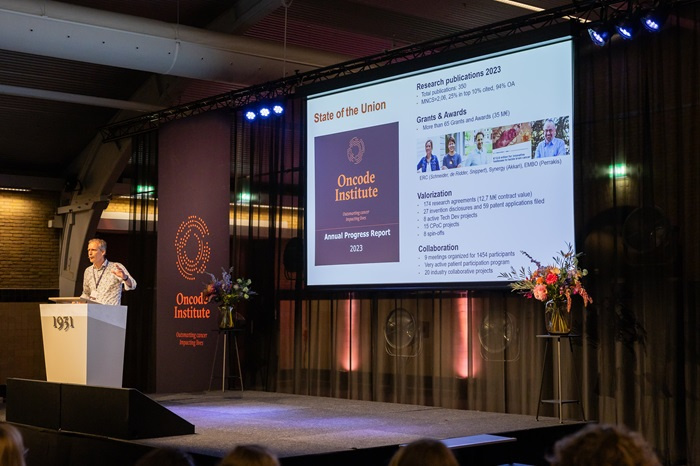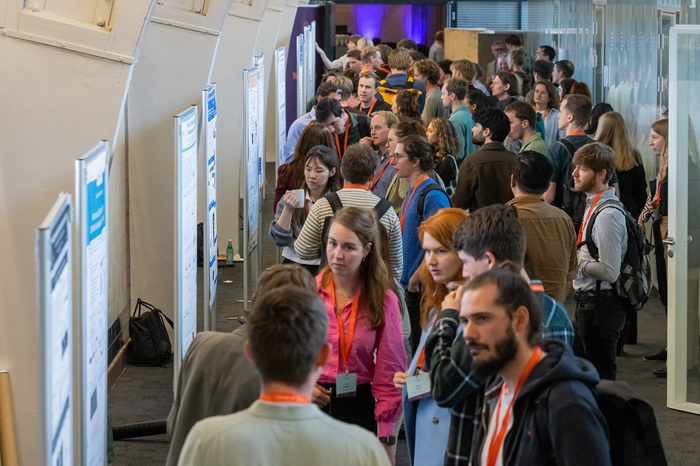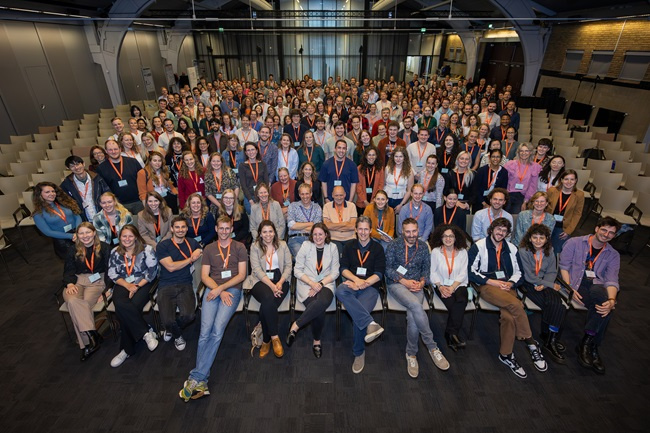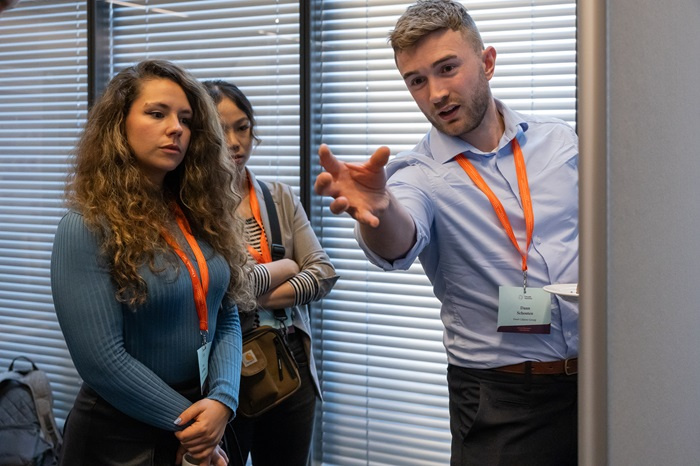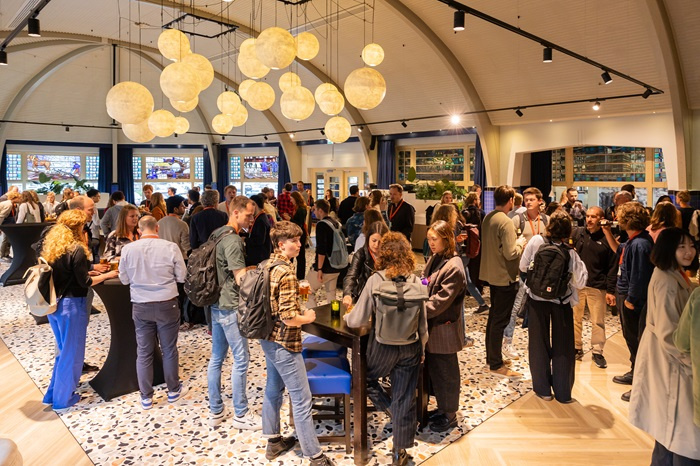For the first time taking place in Den Bosch, the Oncode Institute Annual Meeting this year saw maximum attendance and a great atmosphere. There were two days filled with interesting presentations, special sessions, poster presentations and networking. And this year’s edition was special also because it welcomed the new Oncode Investigators and their teams to the Oncode family – with all 10 Junior Oncode Investigators presenting their science during the event.
A session with patients
Three speakers were invited for the Patient Engagement Programme (PEP) Session during the Annual Meeting: Karin de Visser (Oncode Investigator/NKI), Carolien Hovenier and Cor Polling (both patient representative within Oncode Institute’s Patient Perspective Program) shared their experiences with patient advocacy in international grant applications and highlighted how basic research can benefit from engaging with cancer patients.
The speakers clearly felt comfortable with each other, knowing and respecting each other’s expertise. Being experienced patient representatives - Carolien Hovenier and Cor Polling - could convey their contribution perfectly.
Karin de Visser was skeptical at first, when joining the PEP in 2019, about what patient involvement could bring but the experience of the program turned her into an advocate herself and she highly recommends her peers to involve patients. “It changed my perspective, something I did not expect beforehand”, she says.
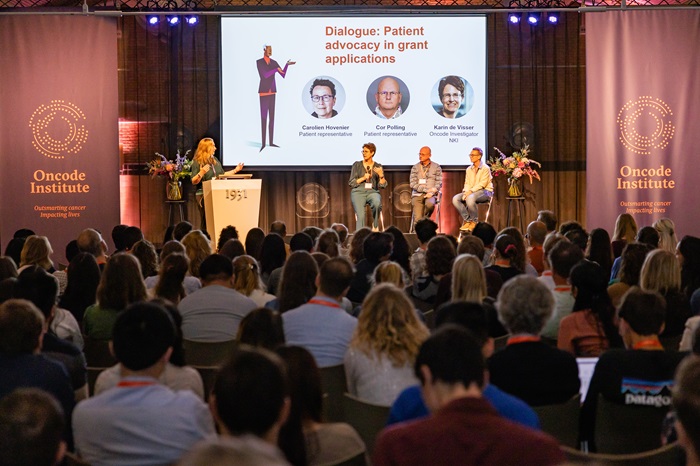
Meeting the OEDES team
During the second day, a special session took place in which Oncode Researchers could meet the OEDES team and discuss their ideas and ask for advice. The discussions were focused on what constitutes a clinical proof of concept (CPoC) project, general questions on how to take their research from the lab to the clinic and looking at some potential new CPoC projects.
Keynote lecture
The Keynote lecture this year was delivered by Stein Aerts (VIB / KU Leuven), who showed that by combining the power of high-throughput single-cell data and deep learning approaches we are getting very close to deciphering gene-expression logic.
Aerts’ models accurately predict transcription factor activities and enable in silico predictions about the effects of single base-pair mutations on gene activities. In his lecture, he showed that with these insights we can engineer cell-type specific expression constructs for targeting and i.e. killing cancer cells. He is now building computational approaches to obtain holistic understanding of the mechanisms that control cell-type specific gene expression mechanisms.
Poster prize winners
This year, 76 participants presented their science through posters that could be seen at the venue, and discussed during the breaks and poster sessions. The two awards for best poster went to Oncode Researcher Sabine Bosman from the lab of Oncode Investigator Madelon Maurice (UMC Utrecht) and to Oncode Researcher Johanna Veldman from the lab of Oncode Investigator Daniel Peeper (NKI).
A special thank you note
We’d like to thank the Scientific Committee – Oncode Investigators Titia Sixma and Daniela Thommen (both at the NKI), Laura Heitman (LACDR) and Jop Kind (Hubrecht Institute) - and all the speakers and poster presenters in the event.
A special thank you also to the OEDES team, and to Stein Aerts (VIB / KU Leuven), John Haanen (NKI) and to patient representatives Carolien Hovenier and Cor Polling.
Last but not least, we’d like to thank everyone who joined the event. We hope to see you all again next year!
